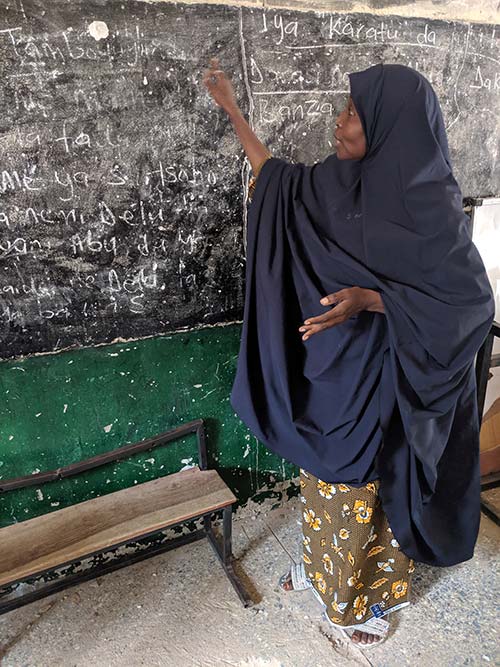Conflict, forced relocation and climate change have disrupted the lives of millions of people around the world. In Ukraine, for example, a year of armed conflict has resulted in the displacement of more than 13 million people and the destruction of much of the nation’s infrastructure, including schools and universities. As a result, the education of many young Ukrainians has been interrupted, as has their ability to build their futures.
Tagged: refugees
-
-
Disease. Drought. Conflict. It is not your imagination; there are more emergencies today than in years past. Storms are growing more frequent and extreme in some regions, while other areas are becoming more arid, with growing seasons disappearing before farmers’ eyes. More competition for scarce resources means more displacement and more conflict.
-
Wealthy nations are now fragile states. Climate change poses an existential threat to humanity. And, the damage done by a global pandemic is not yet fully known but has already erased a decade of progress in the fight against extreme poverty. We are living in a world where crises are proliferating and take much longer to resolve. Some never end.
My guest for this episode of A Deeper Look, Heba Aly, is drawing attention to the many forces disrupting the world and the implications for us all. Heba is the Director of the New Humanitarian, host of the podcast Rethinking Humanitarianism, and a career journalist. Heba is questioning everything from the power dynamics in aid to the increasingly intertwined nature of humanitarian response and development.
-

Maryam Mustapha teaches at a nonformal learning center in Maiduguri, Northeast Nigeria. Her classes include social emotional learning, a critical component of programming for education in emergencies. Photo credit: Anna Eisenberg/FHI 360
In emergency contexts, when many support structures fracture, education can provide protection, heal trauma and inspire hope. Education programs that feature social-emotional learning (SEL) interventions — the process through which children and adults understand and manage emotions and develop self-control and interpersonal skills — have the potential for large-scale impact in fragile and humanitarian contexts. SEL is an especially powerful healer for migrants, refugees and children who can be scarred from prolonged insecurity, trauma, loss, violence or separation from family or homeland.
As new crises seemingly arise every day and existing ones become more protracted, we at FHI 360, the LEGO Foundation and UNESCO’s Global Education Monitoring (GEM) Report are exploring evidence-based ways to incorporate SEL research and programming for education in emergencies.
A new policy paper from the GEM Report, Education as Healing: Addressing the Trauma of Displacement through Social and Emotional Learning, draws on the global analysis in the 2019 GEM Report assessment on migration, displacement and education and rigorous new research done in partnership with FHI 360 to compile evidence-based findings on effective SEL approaches. The paper also presents recommendations for policymakers and other stakeholders to invest in SEL evidence-generation and programming at global, national and regional levels.
-
This year, I dedicated my monthly podcast, A Deeper Look, to examining humanitarian crises and emergency response. I had the opportunity to talk with senior leaders, youth and seasoned humanitarians who offered multiple perspectives on how this issue impacts communities and people in such areas as gender, technology, food security and education.
Although the topics covered in our conversations varied widely, my guests were unified in their belief that the nature of humanitarian crises has changed over the years. We are seeing historic levels of people who are displaced by conflict for longer periods than in the past, and the number of natural disasters is increasing. We discussed how the changing characteristics of these crises are radically altering the way we do development. My guests and I also talked about some of the courageous, innovative responses that give us hope for the future.
-
Saria was a young teenager when conflict broke out in Syria. His school was closed and converted into a military base, forcing him to abandon his education. He was captured by three different groups, the Syrian Intelligence, the Free Syrian Army and Jabhat al-Nusra, before fleeing to Jordan.
-
It’s a new year. There is a lot to be hopeful about as we look ahead, and we heard a great deal of that optimism during our podcast last year on the Sustainable Development Goals. Yet increasingly, the progress we have seen in human development is threatened by larger, and more devastating, complex emergencies.
